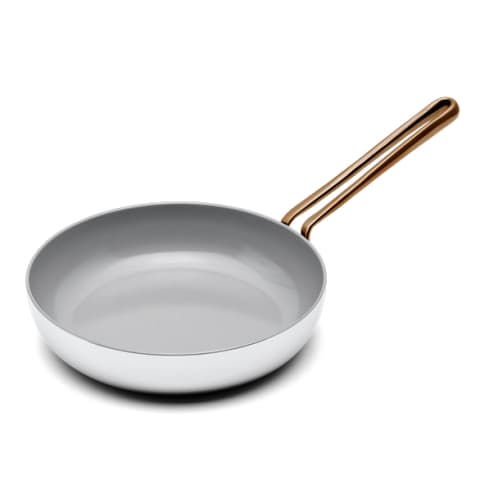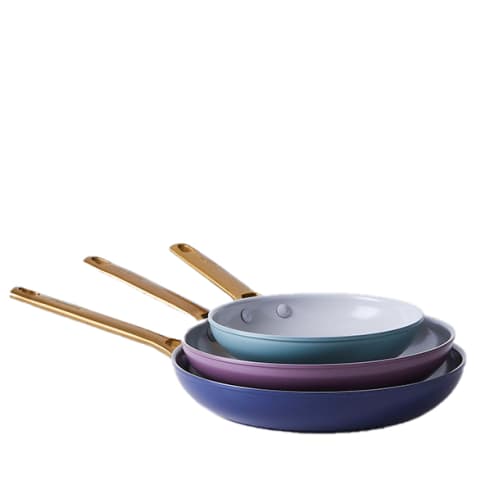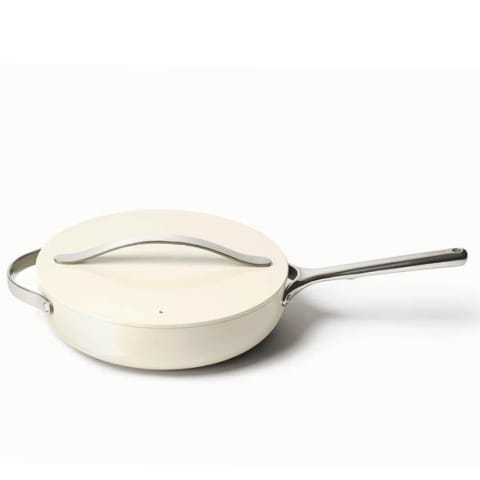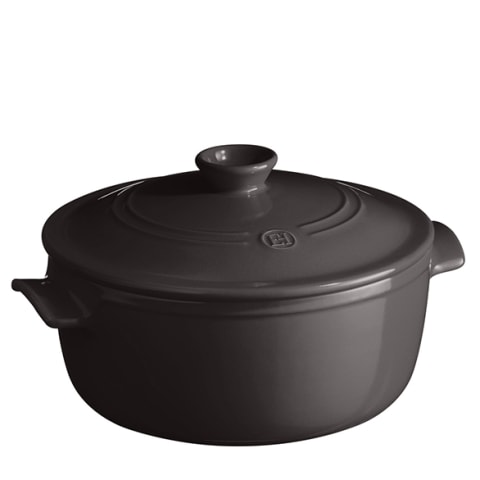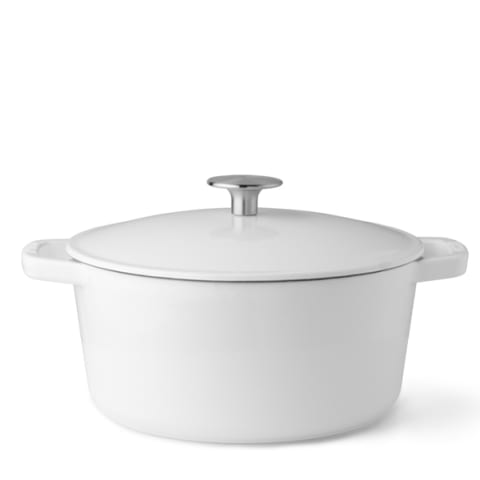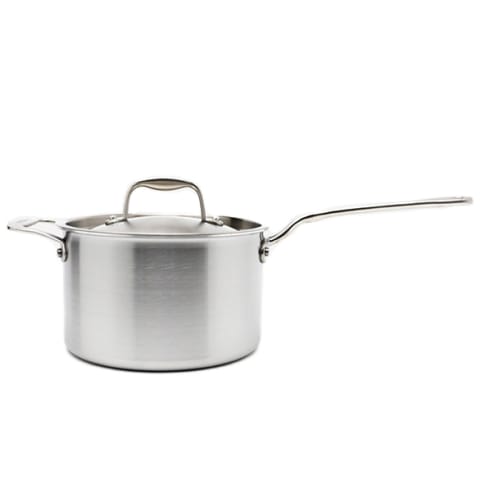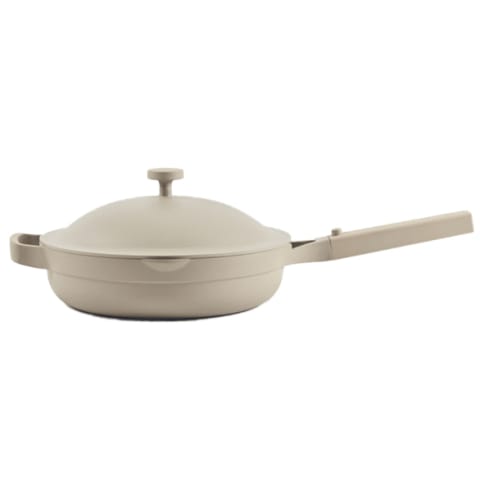And since this class of chemicals is designed to resist water, oil, and the like, they can stick around in the environment for a long, long time. (High levels of them have been found in drinking water supplies across the U.S.) Some PFAs have been banned in cookware for over five years, so they’re no longer as much of a concern as they used to be. However, you should always look for a pan that’s PFAs-free. Ceramic-based coatings tend to be the safer pick for non-stick. If you still have any non-stick pans that predate 2015, they might contain PFAs. Recycle them so they can be broken down responsibly (more on that below) and go with a non-toxic option instead. When the time comes, research if your curbside recycler can process your pans before you discard them in your blue bin; you might need to take them to a specialty waste manager. Non-stick pans tend to be more difficult to recycle, so make sure they accept those before bringing them in. With this criteria in mind, here are the eco-friendly pans that would fit right in to any chef’s kitchen: Great Jones Small Fry ($55) Food52 x GreenPan Non-Stick Skillet (Set of 2) ($92–$99) Caraway Sauté Pan ($135) Emile Henry Round Dutch Oven ($100) Milo Small Dutch Oven ($110) Made In Stainless Steel Sauce Pan ($109) Our Place Always Pan ($145) Emma received her B.A. in Environmental Science & Policy with a specialty in environmental communications from Duke University. In addition to penning over 1,000 mbg articles on topics from the water crisis in California to the rise of urban beekeeping, her work has appeared on Grist, Bloomberg News, Bustle, and Forbes. She’s spoken about the intersection of self-care and sustainability on podcasts and live events alongside environmental thought leaders like Marci Zaroff, Gay Browne, and Summer Rayne Oakes.


